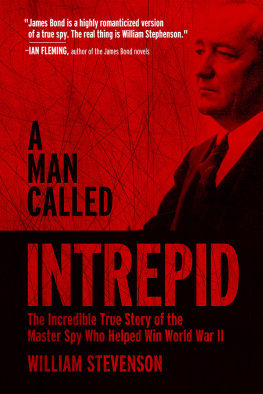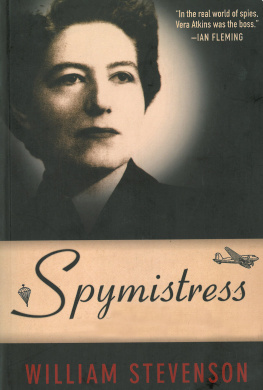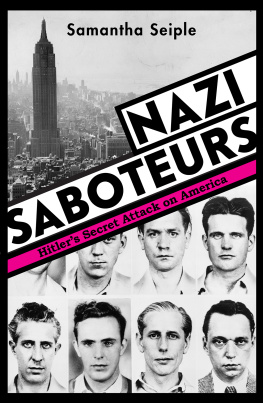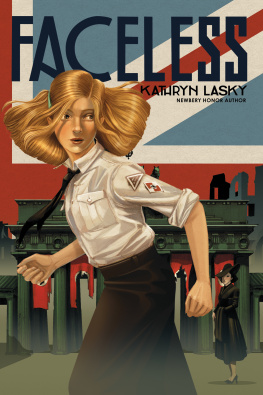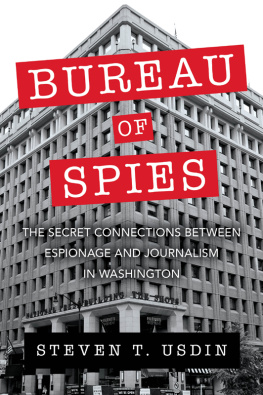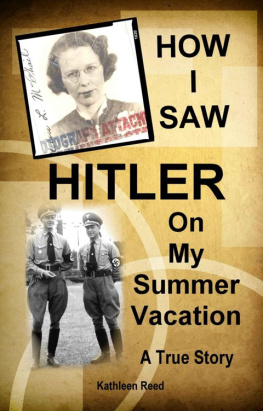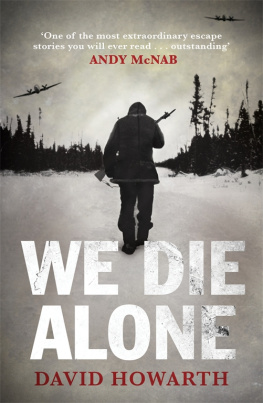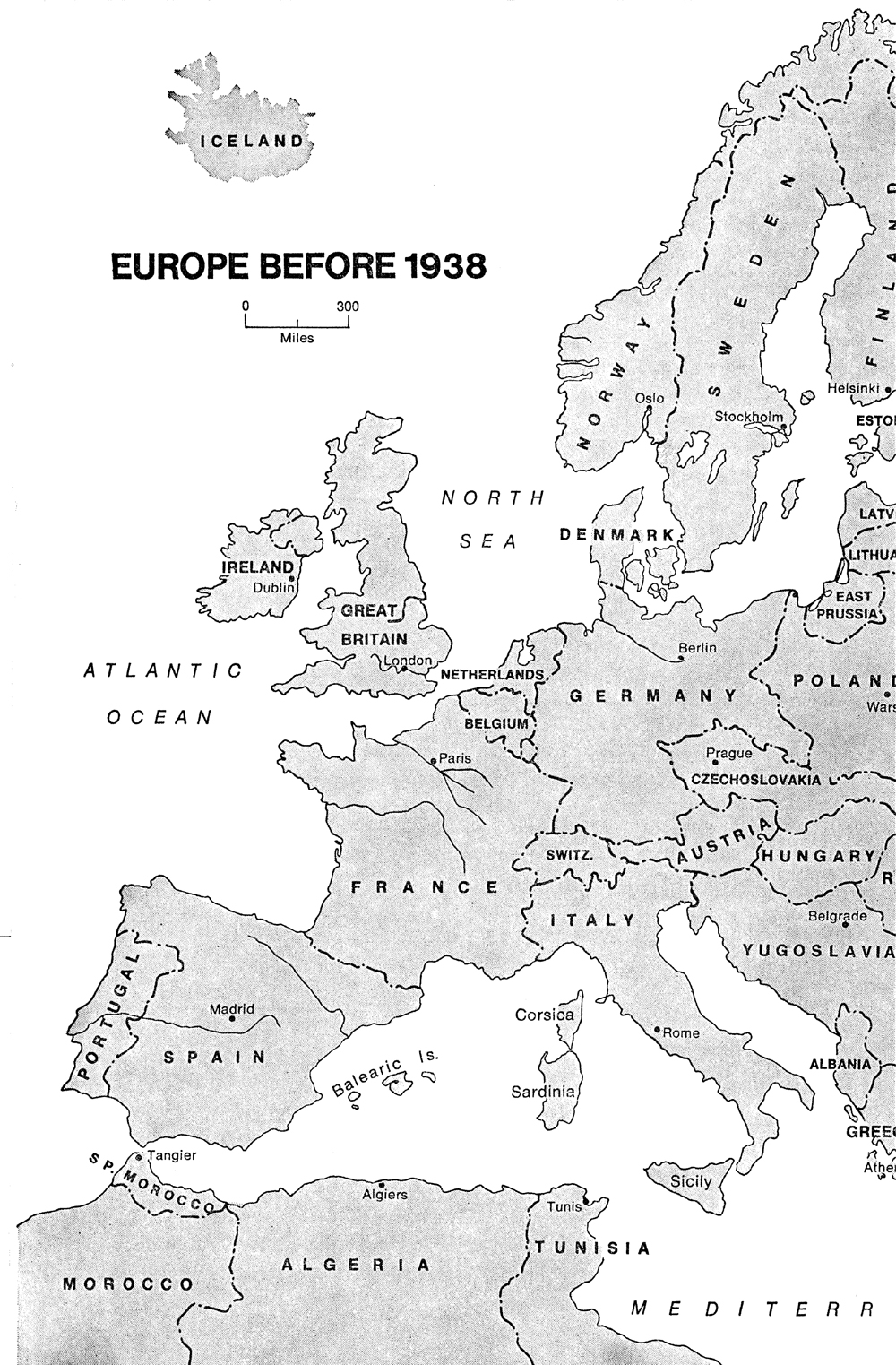
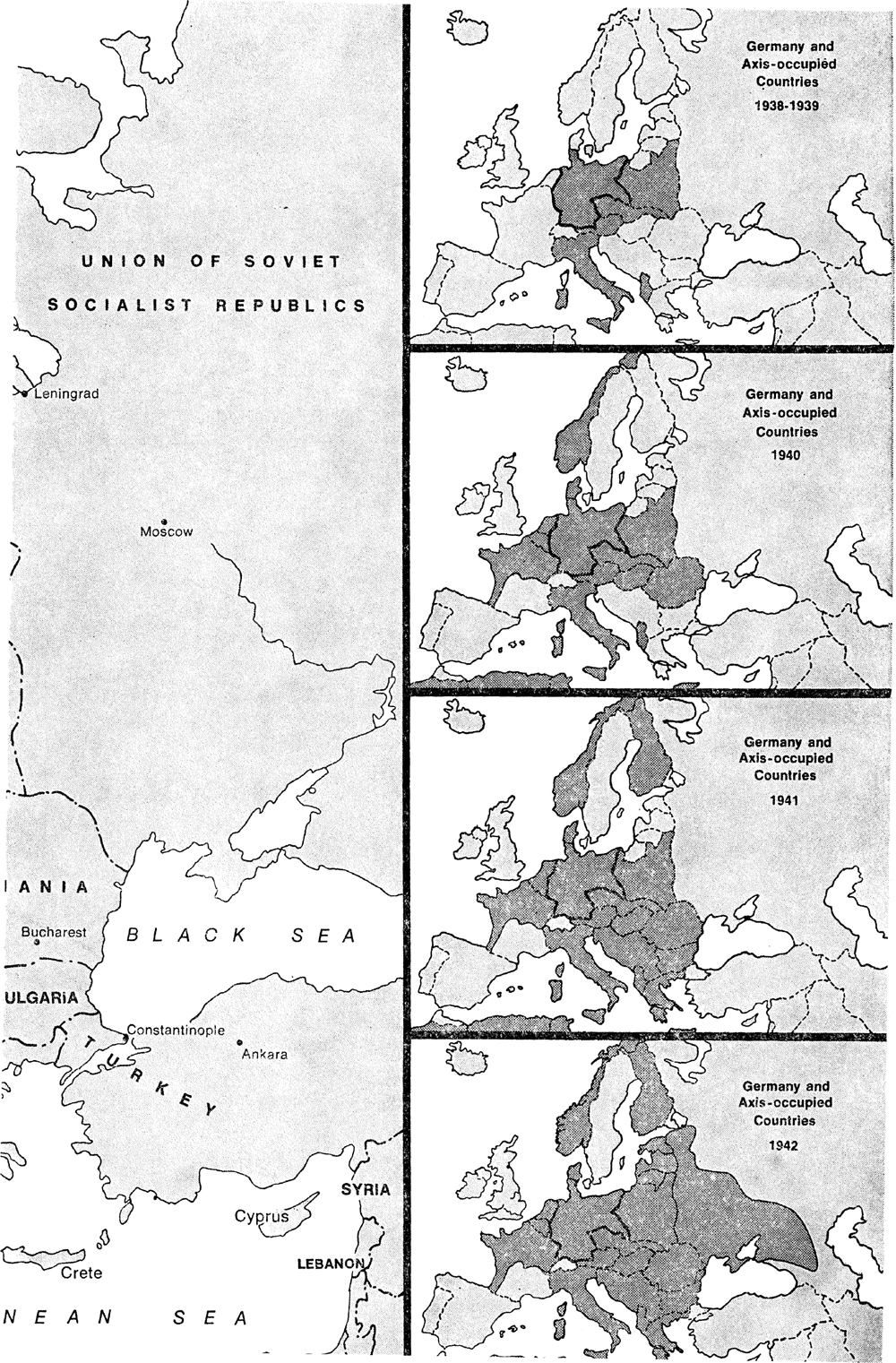
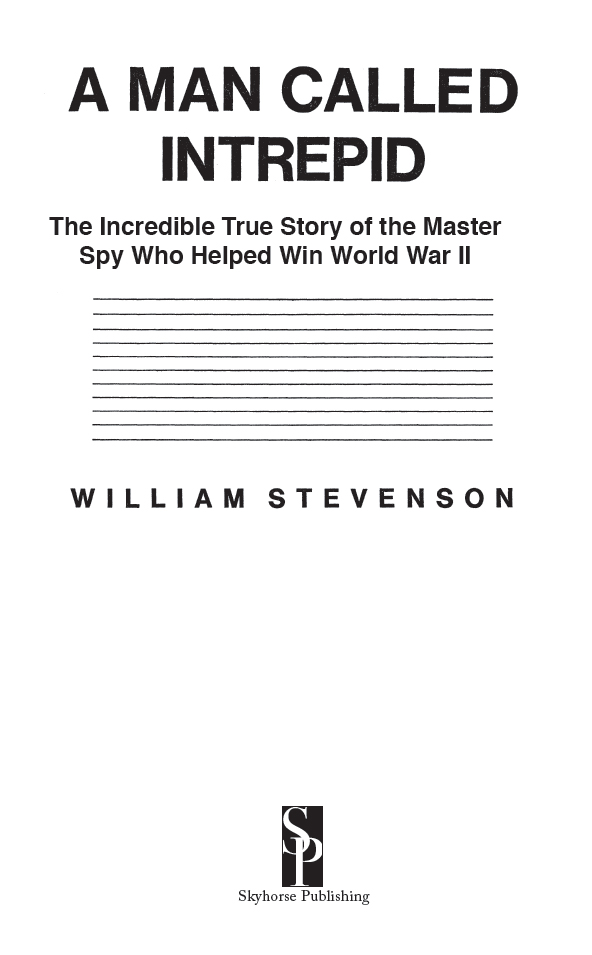
Copyright 1976, 2014 by William Stevenson All Rights Reserved. No part of this book may be reproduced in any manner without the express written consent of the publisher, except in the case of brief excerpts in critical reviews or articles. All inquiries should be addressed to Skyhorse Publishing, 307 West 36th Street, 11th Floor, New York, NY 10018.
Skyhorse Publishing books may be purchased in bulk at special discounts for sales promotion, corporate gifts, fund-raising, or educational purposes. Special editions can also be created to specifications. For details, contact the Special Sales Department, Skyhorse Publishing, 307 West 36th Street, 11th Floor, New York, NY 10018 or info@skyhorsepublishing.com.
Skyhorse and Skyhorse Publishing are registered trademarks of Skyhorse Publishing, Inc., a Delaware corporation.
Visit our website at www.skyhorsepublishing.com.
10 9 8 7 6 5 4 3 2 1
Library of Congress Cataloging-in-Publication Data is available on file.
eISBN: 978-1-62914-360-6
With love and admiration for
Mary French Simmons,
of Springfield, Tennessee,
in recognition of her
courage and devotion,
and who, as Lady Stephenson,
made INTREPID possible
CONTENTS
POINT OF DEPARTURE
A Foreword by Intrepid
President Franklin Delano Roosevelt supported a secret war against tyranny for two years when the United States was formally at peace. Then, attacked without warning, the United States replaced the staid costume of diplomacy for the combat fatigues of war. The enemyNazi Germany, Imperial Japan, Fascist Italy, and their puppetswas at last out in the open. But the secret war continued in secrecy.
For cogent reasons, the fundamental facts of that hidden activity have never been fully revealed. The complete facts have been known to few; some have not been committed to any documents; the written records have been totally inaccessible; and for thirty-five years they were under the rigid restraint of Britains Official Secrets Act. Even now, a few matters must remain undisclosed for reasons that, of course, will not be obvious. But in terms of historywhat really happened and whynothing significant need now be concealed.
In 1940, supplied all but daily with evidence that Hitlers scheme of world domination by terror, deceit, and conquest was undeniably underway, Roosevelt recognized that the defeat of embattled Britain would be prologue to an ultimate attack upon the United States. Intelligence was given to him by me or through me as Winston Churchills secret envoy and as chief of British Security Coordination. BSC, the innocuous-sounding organization with headquarters in New York, was, in fact, the hub for all branches of British intelligence. Roosevelt was acutely aware that America, psychologically isolated since World War I and relying wistfully upon geographical insularity, was woefully unprepared to meet or counter the onslaught of newly developed military, propaganda, and espionage techniques. He desperately needed time to alert his nation and to arm it without plummeting into war. Churchill was in far more desperate need of arms and supplies to grant severely battered Britain even a modest hope of resistance and a slim chance of survival. Only a leader who could extend his vision of national self-interest to the belief that a union of free people was the real defense against totalitarian aggressors would wager on Britain at such unattractive odds. Roosevelt was such a rare gambler.
With Japans attack on Pearl Harbor and, within a few days, Hitlers declaration of war against the United States, all diplomatic sham abruptly ceased. Military and naval operations, however covert their planning and launching, became dramatically public upon execution, frequently reported in eyewitness accounts by daring war correspondents. But the secret war, burgeoning in intricacy to immense proportion and purpose, remained by its very nature obscure and unknown. With few exceptions, the crucial events have remained so.
After all these years, why tell about them now? In my view, there are compelling arguments for disclosure.
In the most personal sense, I consider this account a tribute to the gallant women and men of many nations who volunteered to fight in unconventional ways. They assumed frightful risks, had no protection or privilege of uniform, carried the responsibility of countless lives in the solitary missions they accepted on trust, and often were forced to make lonely decisions that could mean merciless death to their families and countrymen. Many of these agents and resistance fighters lie in unmarked or unknown graves. Relatively few have gained recognition beyond mention in confidential archives. Most of those who survived returned to peaceful pursuits, unable to receive honors or rewards. Those who are named in this narrative are but a few of the vast hidden army to whom the free world owes a debt that cannot be repaid.
But there are less personal, more acute reasons for these disclosures.
With the surrender of the shattered Axis Powers in 1945, BSC dismantled its labyrinthine apparatus and silently passed out of existence. Its furious life had seen the tide of battle turn from near-fatal defeat to overwhelming victory. The Grand Alliance had prevailed in a fiery test. The Holocaust provided eleven million ghostly voices deafeningly raised against the malignancy of modern barbarism. The wreckage of London, Berlin, Hiroshima, and other landmarks of civilization stood as massive reminder of the monstrosity of the new concept of war that recognized no noncombatants, neither the infant, the infirm, nor the helpless. Yet the incipient United Nations promised an international commitment to comity and reason. And the imminent ordeal of Nuremberg seemed to signal the long-sought awakening of world conscience and the recognition of responsibility for crimes against humanity. We looked with yearning upon a planet in the springtime of safe coexistence.
The weapon of secret warfare, so terrifyingly effective, forged out of necessity in the crucible of combat, had no place in the pastures of peace. To my profound relief, INTREPID ceased to be the code name for the chief of an intelligence network. I closed the books on BSC, never, I hoped, to open them again.
Perhaps it was foolhardy to suppose that in real life we could undo what had been done, cancel our knowledge of evil, uninvent our weapons, stow away what remained in some safe hiding place. With the devastation of World War II still grimly visible, its stench hardly gone from the air, the community of nations started to fragment, its members splitting into factions, resorting to threats and, finally, to violence and to war. The certainty of peace had proved little more than a fragile dream. And so the great democracies triumphed, Sir Winston Churchill wrote later. And so were able to resume the follies that had nearly cost them their life.
Prophetic as he was, Churchill did not foresee the awesome extremes to which these follies would extend: diplomacy negotiated within a balance of nuclear terror; resistance tactics translated into guidelines for fanatics and terrorists; intelligence agencies evolving technologically to a level where they could threaten the very principles of the nations they were created to defend. One way or another, such dragons teeth were sown in the secret activities of World War II. Questions of utmost gravity emerged: Were crucial events being maneuvered by elite secret power groups? Were self-aggrandizing careerists cynically displacing principle among those entrusted with the stewardship of intelligence? What had happened over three decades to an altruistic force that had played so pivotal a role in saving a free world from annihilation or slavery? In the name of sanity, the past now had to be seen clearly. The time had come to open the books.

